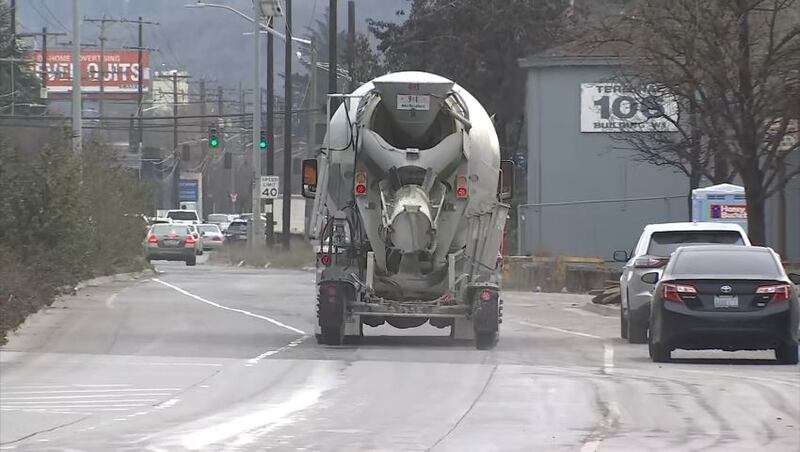Teamsters organizers say they’re further away from reaching a deal than ever before with six Seattle-area concrete companies. A new problem is dividing the two parties, what Local 174 is calling “ghost trucks.”
“We call them ‘ghost trucks’ because they have no logos on them, oftentimes no license plates, no DOT number,” says Jamie Fleming with Local 174.
According to the Teamsters, not just anyone can hop behind the wheel of a mixer truck. Drivers must adjust the speed of the drum as road conditions change.
Fleming says, if you don’t get that load in the ground within 90 minutes, the concrete will harden.
“These big projects are going to really regret the decision to use this poor quality concrete because they’re going to have to end up redoing it. It’s going to crack in a few years,” argues Fleming.
Projects like Sound Transit’s light rail have been using the nonunion concrete. Chris Elwell, Sound Transit’s Director of Labor Compliances, says it’s a decision out of their hands. Contractors decide what concrete is used. Elwell wants to assure those concerned that every load is rigorously tested by professional inspectors.
“They’re testing for consistency. They’re testing for strength,” says Elwell.
More news from KIRO 7
- Assistant principal fired for reading book to second-grade class
- Man charged in random Seattle attack of woman at light rail station
- Scott Kelly gets in tweet war after Russian suggests US astronaut will be left in space
- Do you have an investigative story tip? Send us an email at investigate@kiro7.com
©2022 Cox Media Group








